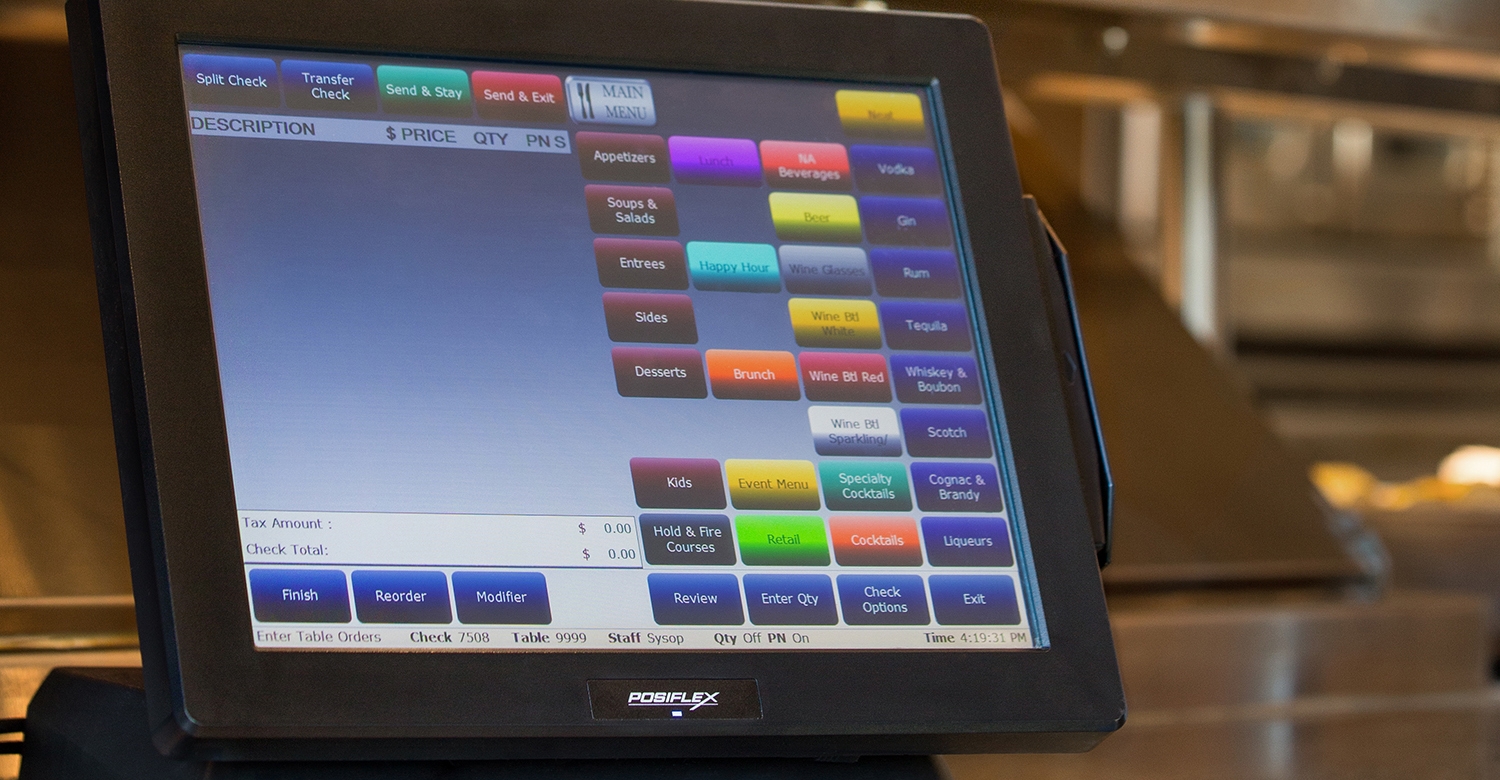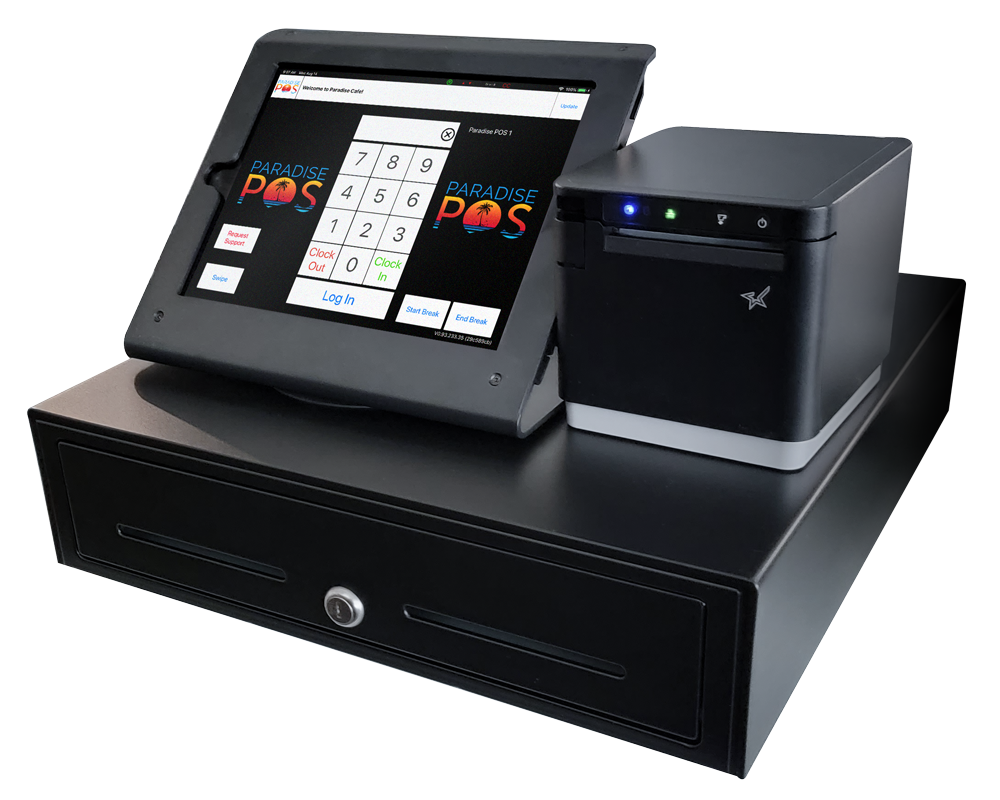Not known Factual Statements About Point Of Sale

POS Machine: Retail Point-Of-Sale Solutions Streamline Transactions
The 2-Minute Rule for Pos System For Small Business

Hardware Parts of a Point of Sale System What makes a POS system tick? It's not just software; the hardware plays here a starring function. Consider it as the body to the software application's brain. Without the right hardware, even the most sophisticated POS software application is just a pretty face. Necessary POS Hardware So, what are the must-haves? Let's break it down. The central processing unit, typically a computer or tablet, is the heart of the operation. The screen or touchscreen display permits staff to communicate with the system. A barcode scanner accelerate the checkout procedure. Keep in mind the days of by hand getting in each code? The reliable invoice printer supplies clients with a record of their purchase. A money drawer keeps your cash safe and arranged. A card reader permits clients to pay with credit or debit cards. Diving Deeper: Beyond the Essential But wait, there's more! Depending on your organization, you may need customized hardware. A dining establishment may incorporate kitchen printers to relay orders, while a retail shop might use label printers for item tagging. Ever question how your regional bakery instantly prints those delicious-looking labels? Choosing the Right Hardware: A Balancing Act Choosing the ideal hardware isn't just about buying the most costly equipment. It's about finding the sweet area in between performance, sturdiness, and budget plan. A small company simply starting out might choose for a more basic setup, while a high-volume retailer will require robust, high-performance makers. Is it better to purchase brand-new or used? Consider your options carefully. A new system provides the current innovation and warranty security, but a refurbished system can save you money. The Future of POS Hardware What does the future hold? Expect to see a lot more integration with mobile devices, biometric scanners for employee authentication, and advanced analytics dashboards displayed on larger, clearer screens. Imagine a world where stock is instantly upgraded in real-time as items are scanned-- a world where you can track your very popular product from anywhere in the world. The possibilities are unlimited, and the hardware is continually evolving to fulfill the needs of today's organizations. Are you ready to upgrade your point of sale system?
Software Application Features and Capabilities: The Heart of Your POS System
Ever enjoy a seasoned barista move through a busy early morning rush? Their trick isn't simply caffeine; it's a smooth dance with their POS system. The software application is the conductor of your business symphony, managing whatever from sales to stock. What notes should you be listening for? What abilities truly matter in today's market?
Stock Management: Beyond Counting Beans
Forget spreadsheets that haunt your dreams. Modern POS systems use real-time stock tracking, signaling you when your stock of artisanal coffee beans dips precariously low. Think about it as a digital guardian angel, preventing those uncomfortable "Sorry, we're out!" minutes to clients. What if you could also forecast need based on historical information? Many systems now offer forecasting tools, a powerful weapon versus overstocking and lost sales. This helps avoid the predicament of lacking popular items or building up excess stock of slow-moving products, both of which can constrain money flow and space.
Sales Reporting and Analytics: Decoding the Information
Sales information is the brand-new gold, and your POS system is the miner. Forget feeling in one's bones how much you sold today. Dive deep into the data to discover trends, identify your best-selling items, and understand client habits. Which menu product sets perfectly with the daily special? Which promotion resonated most with your customers? These insights are not just interesting; they're actionable intelligence. Without dependable sales reporting, browsing the complexities of company decision-making becomes like sailing without a compass, increasing the opportunity of mistakes and missed out on chances.
Customer Relationship Management (CRM): Building Bridges, Not Walls
Keeping in mind a routine customer's name and preferred order is lovely, but scaling that personal touch is tricky. POS systems with CRM abilities allow you to track consumer purchase history, choices, and even birthdays. Imagine automatically offering a discount on their birthday-- a small gesture that fosters commitment and motivates repeat organization. There is the prospective snag of bad information quality, which can lead to unreliable consumer profiles and inadequate marketing efforts.
Payment Processing: Enhancing the Deal
The checkout experience can make or break a sale. Smooth combination with different payment approaches-- credit cards, mobile wallets, even copyright-- is non-negotiable. Can your system manage split payments? Does it provide secure tokenization to safeguard consumer information? A clunky payment process is like striking a sour note in your organization symphony, possibly disrupting the entire efficiency. Ensuring compatibility with progressing payment technologies and adherence to security standards are vital for keeping customer trust and operational performance.
Staff Member Management: Keeping the Group in Sync
From clocking in and out to handling consents and tracking performance, employee management features simplify operations and enhance accountability. Is scheduling a headache? Many POS systems use integrated scheduling tools, optimizing staffing levels based on forecasted demand. A typical challenge that is frequently neglected is the challenge of integrating staff member management performances with payroll systems, which can cause mistakes and inadequacies in wage computations.
Advanced Characteristics: Leveling Up Your Operations
- Table Management: Ideal for dining establishments, this function permits you to visualize your dining-room, track table status, and handle bookings.
- Loyalty Programs: Reward your finest customers and encourage repeat service with incorporated commitment programs.
- Online Ordering Combination: Perfectly integrate your POS system with online purchasing platforms to expand your reach.
Picking the right POS system is about more than just performance; it's about finding a partner that can grow with your company. Consider your existing requirements, anticipate future growth, and do not hesitate to ask the tough questions. The right software can transform your business from a chaotic cacophony into an unified masterpiece.
Industry-Specific POS System Applications
Think about the regional bakeshop, busy with early morning clients yearning fresh croissants. A generic POS system might deal with transactions, however can it handle complex dishes, track component inventory, or instantly change production schedules based on sales data? Probably not. That is where the charm of industry-specific POS systems shines.
Dining establishments and Hospitality
For busy restaurants, speed and accuracy are critical. The number of times have you seen servers managing orders, modifications, and splitting costs, all while trying to offer exceptional service? A dining establishment POS system simplifies these procedures, permitting table management, cooking area order tickets, and even online purchasing integration. These systems frequently include functions like ingredient-level stock tracking, crucial for handling food costs and minimizing waste. Ever question why your favorite meal is sometimes unavailable? It might stem from a lack of proper inventory management.
- Table Management
- Kitchen Order Tickets
- Online Buying Integration
- Ingredient-Level Stock Tracking
Retail Solutions
Retail, with its varied inventory and consumer interactions, demands a different set of tools. Envision a boutique clothes store struggling to keep track of sizes, colors, and seasonal collections utilizing a fundamental checkout system. An industry-specific retail POS system offers functions like barcode scanning, client loyalty programs, and in-depth sales reporting. These systems can even integrate with e-commerce platforms, providing a smooth omnichannel experience for clients. Did you know some retail POS systems can forecast future sales patterns based upon historic data? Now that is powerful!
The Perils of a Mismatch
Selecting the incorrect POS system can produce significant functional obstacles. A clothing shop utilizing a restaurant POS, for instance, would discover it inappropriate for handling inventory with sizes and colors. The absence of correct reporting and analytics could cause mistaken buying choices and lost profits. The result might be comparable to trying to fit a square peg in a round hole.
Key Factors to consider
Choosing an industry-specific POS system requires careful assessment. Consider your service's unique requirements and functional workflows. Does the system incorporate with existing software? Does it offer the essential reporting capabilities? Is it scalable to accommodate future development? A well-chosen POS system is not just a transaction tool; it's a strategic possession that can drive effectiveness, enhance client fulfillment, and ultimately, increase your bottom line. Remember, it is an investment in your company's future, not just a cost.
Security Considerations for Point of Sale Systems
Ever heard the tale of the mom-and-pop shop that lost everything since of a single, overlooked security defect in their POS system!.?. !? It's a cautionary tale, and it highlights a critical aspect frequently eclipsed by the allure of expensive functions and structured operations. The reality is, a POS system is only as great as its security. What good is a system that crunches numbers in a flash if it permits criminals to swipe customer's information just as rapidly?
The Vulnerability Minefield
The digital landscape is a battleground. Every POS system, regardless of size or elegance, is a possible target. Are you genuinely got ready for the hazards prowling around the corner? The genuine pinch comes when you discover that your out-of-date software application has a gaping hole that hackers can make use of, turning your organization into an unwitting accomplice in identity theft. The trouble is that hackers are crafty and are always changing their methods.
Common Security Gaps and Specialist Tips
- Weak Passwords: "Password123" isn't sufficing. Use strong, distinct passwords for all POS system accounts and change them routinely. Two-factor authentication is a must.
- Unsecured Networks: Your Wi-Fi resembles leaving the front door open. Secure your network with strong encryption (WPA3 if possible) and consider a separate network for your POS system.
- Outdated Software: Software application vendors spot security holes all the time. Failing to update resembles welcoming difficulty. Establish automated updates or schedule regular maintenance.
- Employee Training: Your staff is your first line of defense. Train them to acknowledge phishing efforts, safeguard passwords, and report suspicious activity.
Information Encryption: Your Guard Versus the Dark Arts
Believe of data encryption as a secret code. It scrambles delicate info, like charge card numbers, making it unreadable to unapproved users. Without encryption, your consumers' monetary information resemble sitting ducks, ripe for the picking by cybercriminals. It's not practically securing your customers; it has to do with safeguarding your credibility and preventing substantial fines.
PCI Compliance: The Rulebook You Can't Disregard
If you accept credit cards, you're bound by the Payment Card Market Data Security Standard (PCI DSS) It's a set of security standards designed to secure cardholder data. Failing to comply can lead to fines, penalties, and even the loss of your ability to process charge card payments. It's a headache, yes, however it's a required one. Consider PCI compliance as the expense of doing service in the digital age.
Consider this: every deal processed through your point of sale is a prospective entry point for harmful actors. By carrying out robust security steps, you're not just securing your organization; you're protecting your clients' trust and making sure the long-term practicality of your operations. The security of your POS system isn't just a technical concern; it's a business necessary. It needs continuous vigilance, proactive steps, and a dedication to staying ahead of the curve.